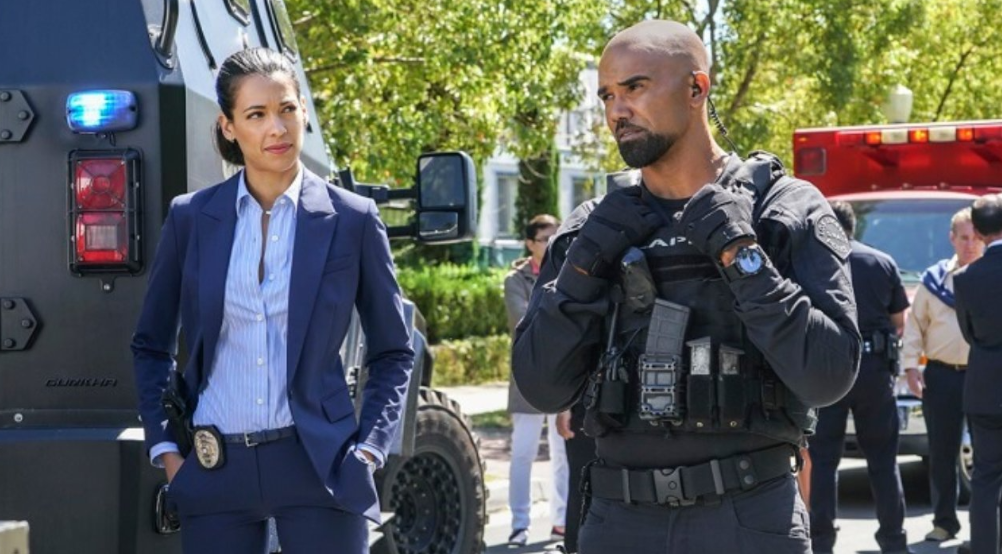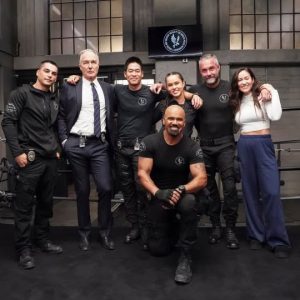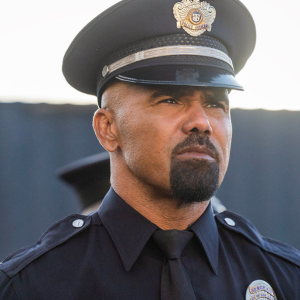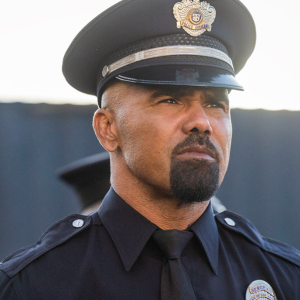The journey of the television series S.W.A.T., a dynamic police procedural centered on the elite Special Weapons And Tactics unit of the Los Angeles Police Department, has been anything but conventional. Led by the charismatic Shemar Moore as Sergeant Daniel “Hondo” Harrelson, the show carved out a significant niche among audiences since its 2017 debut. It stood out not just for its high-octane action sequences and tactical precision, but also for its commitment to exploring complex contemporary issues, including racial tensions, community policing, and the challenging realities faced by law enforcement officers. The ensemble cast, featuring diverse and compelling characters like Deacon Kay, Street, Tan, Luca, and the groundbreaking Chris Alonso, fostered a strong sense of camaraderie and family, resonating deeply with viewers who appreciated the human element woven into the thrilling narratives.
Beyond its compelling storylines and gritty realism, S.W.A.T. distinguished itself by tackling sensitive social issues head-on, often reflecting current events and fostering conversations about justice, accountability, and the role of police in society. Hondo, as a Black S.W.A.T. team leader born and raised in the community he serves, frequently navigated the fraught intersection of law enforcement and community trust, offering a nuanced perspective rarely seen in network television. This thematic depth, combined with relentless action and intricate character development, cemented S.W.A.T. as a critical and commercial success, developing a fiercely loyal fanbase that would prove instrumental in its tumultuous path.
Despite its popularity, S.W.A.T. found itself in a precarious position not once, but thrice, facing cancellation before its eventual conclusion after eight seasons. This turbulent ride was less a reflection of creative fatigue or declining quality and more a stark illustration of the challenging economic realities, intricate licensing agreements, and shifting strategic priorities within the television industry.

The first major hurdle emerged in 2023, signaling a significant financial standoff between CBS, the broadcast network, and Sony Pictures Television, the studio that owns the intellectual property for S.W.A.T. The crux of the dispute lay in the escalating licensing fees Sony demanded for the show. As production costs, including the substantial salaries for its lead actors and the complex, action-heavy sequences, continued to climb, CBS found itself increasingly unwilling to meet Sony’s rising price tag. Negotiations reached an impasse, with CBS reportedly offering a compromise of a shortened final season, a proposal Sony firmly rejected. The consequence was an initial announcement of cancellation, a decision that sent shockwaves through the show’s dedicated fanbase and its cast.
However, what followed was a testament to the extraordinary power of collective fan passion and the influence of a vocal cast. The backlash was immediate and vociferous. Social media erupted with campaigns to save the show, and mainstream media amplified the outcry. Shemar Moore, in particular, became a passionate advocate, delivering heartfelt public pleas that underscored the show’s importance to its cast, crew, and audience. This unprecedented display of support proved too significant to ignore. Within a mere 72 hours of its initial cancellation announcement, CBS and Sony Pictures Television, under immense public pressure, reversed course. A compromise was eventually struck, leading to an unexpected renewal for a thirteen-episode seventh season. This dramatic reprieve highlighted the unique dynamic between networks, studios, and their audiences in the era of social media.
The narrative of S.W.A.T.’s resilience continued when, against all expectations, a renewal for an eighth season was announced in April 2024. This second lifeline was primarily attributed to the show’s phenomenal performance on streaming platforms, most notably Netflix. While linear viewership on CBS had its ebbs and flows, S.W.A.T. proved to be a consistent hit in the streaming realm, attracting new audiences and retaining existing ones who preferred to binge-watch the series. This streaming success, coupled with the unwavering and vocal support from its global fanbase, presented a compelling case for its continued viability, convincing CBS to greenlight another season that had originally not been planned.

Despite these incredible reversals, the final curtain eventually fell after the completion of Season 8. The reasons for this ultimate cancellation were multifaceted. While the streaming numbers remained robust, the show’s traditional linear viewership on CBS experienced a significant decline, averaging approximately 4.9 million viewers, representing a notable twenty percent drop from its seventh season. This placed S.W.A.T. near the bottom of CBS’s prime-time lineup in terms of live viewership. Concurrently, the show’s inherent high production values—characterized by explosive stunts, intricate set pieces, and a large, talented cast—translated into a substantial budget that became increasingly difficult to justify in the face of declining linear ratings. In this final round, unlike previous instances, CBS and Sony did not even enter into renewal negotiations. The broader corporate landscape was undergoing significant shifts, with Paramount Global (CBS’s parent company) facing potential mergers and prioritizing content strategies that focused on tighter budgets and the development of fresh, potentially cheaper, intellectual properties.
The news of the definitive cancellation was met with a mix of sadness and defiance from the cast and crew. Shemar Moore, visibly emotional, personally delivered the news to the team, acknowledging the difficulty of the moment but also celebrating their achievements, stating, “We defied the odds.” In a powerful rallying cry, Moore made it clear that while their run on CBS might be over, the show’s spirit and potential were not. He publicly invited other platforms—naming Netflix, ABC, and Fox—to consider picking up the series, signaling a strong desire to continue. This sentiment was echoed by actor David Lim, who plays Victor Tan, confirming that Sony Pictures Television was actively shopping the show to various streaming services, including Netflix and Paramount+. This proactive approach from the studio underlines a fundamental belief in the show’s continued value and its potential to thrive in the on-demand content market.
Indeed, the prospect of S.W.A.T.’s return remains a potent topic among fans and industry insiders alike. The show’s history of surviving cancellation twice before establishes a precedent for its resilience. With a substantial library of over seven seasons available for streaming and a passionately engaged global fanbase, S.W.A.T. fits the profile of many other beloved series, like Lucifer or Manifest, that found new life on streaming platforms after being canceled by linear networks. These platforms often benefit from acquiring established shows with built-in audiences, reducing the risk associated with new content development. Furthermore, studio executives have indicated that the S.W.A.T. universe is still considered a viable and expandable property. The development of spin-offs, such as S.W.A.T. Exiles, suggests a long-term vision for the franchise, and the possibility of character cameos in future projects ensures that the legacy of Hondo and 20-Squad could endure even if the original series doesn’t return in its exact form.

Ultimately, while the curtain may have definitively fallen on S.W.A.T.’s run on CBS, this does not necessarily mark the end of its storied existence. The series’ repeated defiance of cancellation, its passionate and loyal fan base, and its proven success in the streaming ecosystem keep the door firmly ajar for a potential revival. Whether it finds a new home on Netflix, Paramount+, or another unexpected platform, the spirit of 20-Squad and its commitment to compelling, action-packed storytelling with a social conscience are far from being counted out.





